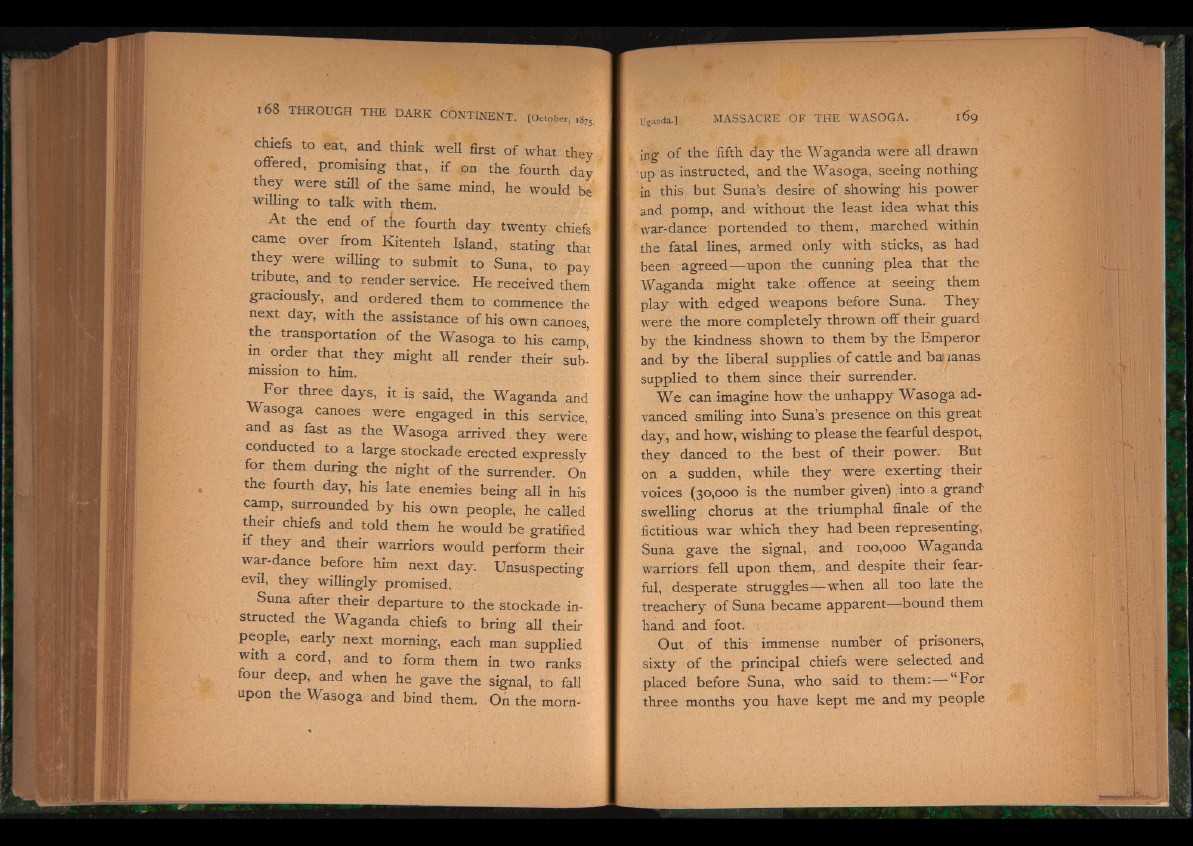
chiefs to eat, and think well first o f what they
offered, promising that, i f on the fourth day
they were still o f the same mind, he would be
willing to talk with them.
A t the end o f tiie fourth d ay twenty chiefs
came over from Kitenteh Island, stating that
th e y were willing to submit to Suna, to pay
tribute, and tp render service. He received them
graciously, and ordered them to commence the
next day, with the assistance o f his own canoes
the transportation o f the Waso ga to his camp’
in order that th ey might all render their submission
to him.
1_.F ° r three days, it is said, the Waganda and
Wasoga canoes were engaged in this service,
and as fast as the Wasoga a rriv ed . th ey were
conducted to a large stockade erected expressly
for them during the night o f the surrender. On
the fourth day, his late enemies being all in his
camp, surrounded b y his own people, he called
their chiefs and told them he would be gratified
i f th ey and their warriors would perform their
war-dance before him next day. Unsuspecting
evil, th ey willingly promised.
Suna after their departure to the stockade instructed
the Waganda chiefs to bring all their
people, early next morning, each man supplied
with a cord, and to form them in two ranks
four deep, and when he ga ve the signal, to fall
upon the W aso ga and bind them. On the morning
o f the fifth day the Waganda were all drawn
up as instructed, and the Wasoga, seeing nothing
in this but Suna’s desire o f showing his power
and pomp, and without the least idea what this
war-dance portended to them, marched within
the fatal lines, armed only with sticks, as had
been agreed— upon the cunning plea that the
Waganda might take offence at seeing them
play with edged weapons before Suna. T h e y
were the more completely thrown off their guard
by the kindness shown to them b y the Emperor
and b y the liberal supplies o f cattle and bananas
supplied to them since their surrender.
W e can imagine how the unhappy W a so g a advanced
smiling into Suna’s presence on this great
day, and how, wishing to please the fearful despot,
they danced to the best o f their power. But
on a sudden, while they were exerting their
voices (30,000 is the number given) into a grand
swelling chorus at the triumphal finale o f the
fictitious war which th ey had been representing,
Suna gave the signal, and 100,000 Waganda
warriors fell upon them, and despite their fearful,
desperate struggles— when all too late the
treachery o f Suna became apparent— bound them
hand and foot.
Out o f this immense number o f prisoners,
s ix ty o f the principal chiefs were selected and
placed before Suna, who said to them:— For
three months yo u have kept me and my people